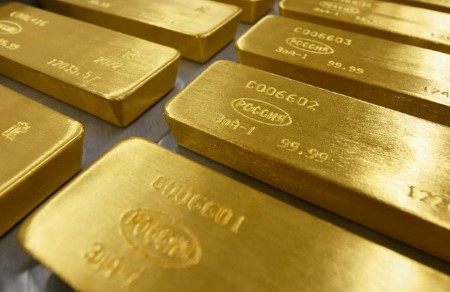




January Economic Update: Growth slows, prices rise
 DOWNLOAD
DOWNLOAD

Inflation Update: Up, up, and away?
 DOWNLOAD
DOWNLOAD

Quarterly Economic Growth Release: Growth takes on a slower pace
 DOWNLOAD
DOWNLOAD


Gold slips on dollar rebound as US inflation test nears

Sept 12 – Gold slipped to a more than two-week low on Tuesday as the dollar rebounded, while investors positioned for the US inflation data on Wednesday.
Spot gold was down 0.5% at USD 1,912.39 per ounce by 1:50 p.m. EDT (1750 GMT), its lowest since Aug. 25. US gold futures settled 0.6% lower at USD 1,935.10.
“People are getting out of the market and waiting to see how the data comes out, and maybe buy gold at a lower price because there’s still (some) safety buying in gold,” said Bob Haberkorn, senior market strategist at RJO Futures.
Making gold more expensive for other currency holders, the dollar index gained 0.2% ahead of the US consumer price index data due on Wednesday, which could influence the Federal Reserve’s interest rate decision.
Headline US inflation climbed 0.6% in August, according to a Reuters poll, versus a 0.2% rise the prior month. However, Americans’ overall views on inflation were little changed in August, the New York Fed reported Monday.
Higher interest rates dull non-yielding bullion’s shine, with traders betting on a roughly 47% chance of a hike in November after a widely expected pause by the Fed next week, according to the CME FedWatch tool.
“Should the inflation figures print above market forecasts, gold prices are likely to depreciate as expectations rise around the Fed having headroom to hike one time this year.” FXTM senior research analyst Lukman Otunuga said.
Traders also awaited the ECB’s rate decision on Thursday. ECB euro short-term rate (ESTR) forwards are pricing a bit more than a 50% chance of a rate hike at this week’s policy meeting.
“Europe’s economy is definitely facing a lot of challenges so eventually safe-haven demand will emerge if investors see that the currency is going to be under pressure,” said Harshal Barot, a senior consultant at Metals Focus.
Silver was flat at USD 23.07 per ounce, platinum rose 1.4% to USD 910.82 and palladium gained 1.5% to USD 1,236.17.
(Reporting by Harshit Verma in Bengaluru; Additional reporting by Stefano Rebaudo in London; Editing by Alexander Smith and Krishna Chandra Eluri)
This article originally appeared on reuters.com





 By Reuters
By Reuters